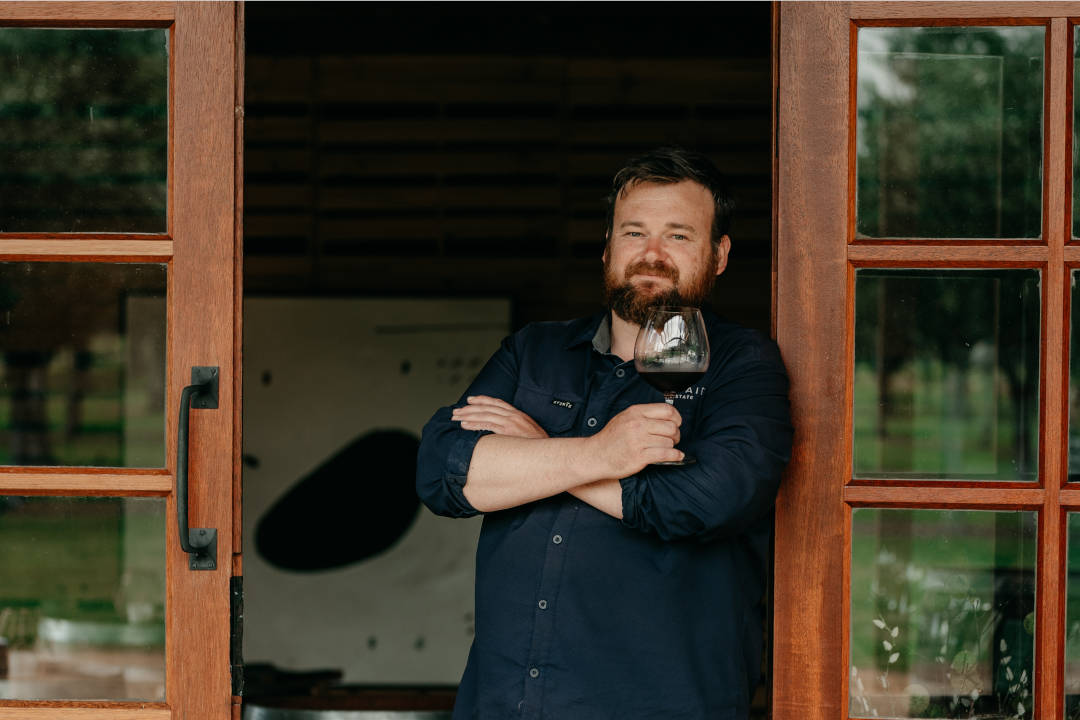Josh Vince
WINEMAKER AT ALTAIR ESTATE
I never grew up dreaming of being a winemaker, in fact I never really heard of it as a career until my late teens. Once I graduated Curtin University in 2013, I simply enjoyed my time in the wine industry and loved the lifestyle that it provided me, but at that stage that’s all it was to me. It wasn’t until 2018 or 2019 that I woke up one morning and had my epiphany moment where I realised that I truly loved what I did, and I wanted to make as much of a success of it as possible. From that time, I have been more deeply developing my passion and philosophy on winemaking.
Please tell us about your career so far, including your education, work experience etc.
After completing my studies in Viticulture and Oenology, coupled with Agribusiness, at Curtin University, I embarked on a journey of discovery within the wine industry. I immersed myself in various roles, from cellar door positions to hands on experience in vineyard management and winemaking. After my studies, I joined Carpe Diem Vineyards, a small winery where I experienced a cultural shift in thinking about winemaking. In 2022 Carpe Diem Vineyards was sold and Altair Estate’s journey began where I have overseen managing the property and designing the direction of the wines.
What do you love most about being a winemaker?
Aside from working with and around beautiful wines and landscapes, I love the excitement of creation and the responsibility of crafting flavours, sensations and emotions in others who have a passion and love of wines.
What is your favourite wine, and what food do you typically pair it with?
Asking a winemaker their favourite wine is a difficult task, I find. I love a wide range of wines and styles depending on my mood, company and food, but nebbiolo’s tannin structure in combination with its vibrant fruit and savoury warm palate, I find irresistible. nebbiolo with slow cooked, shredded, ragu pappardelle is something I couldn’t pass up.
My philosophy is to embrace the fact that wine is made from grapes and that each grape has its own identity and unique characteristics. I like to identify these unique attributes and create a wine style around that, finding the best way to express its individuality. That extends to how I want the vines managed, as well, to create these characteristics from the beginning and allow the wine to have an entire journey from grape to bottle.
Is there any vintage you’re particularly proud of creating? Why?
I like to embrace how vintages change year on year and so each vintage has its own little gems, but I can’t look past the 2022 vintage as my proudest. Our wines are still evolving with the winery and the brand, but the 2022 vintage was my first with complete control of the process, so it will always have a place in my heart.
How does the local climate/soil affect the wine you make?
We are pretty blessed in the Wilyabrup, here in Margaret River. The climate and soils are so conducive to a wide range of varieties and
philosophies. Though our vineyard is north of Margaret River it still has a nice cool aspect despite the flatness. This provides wonderful freshness and vibrancy in our white grapes while the red varieties often remain on the vine for a long period of time as they don’t tend to ripen too quickly.
Our sangiovese embraces the vibrant fruit and acidity of the variety. It is unoaked and very drinkable in summer or winter, room temperature or slightly chilled. It is my pet wine, and I’ve indulged in many bottles.
Where do you see yourself in five years? How do you think your winemaking will evolve during this time?
I believe that year on year you will see a slight development in Altair Estate wines as the brand and winery itself mature, not so much in style, but in quality. Over five years, ideas of complexity, structure and texture will all have settled while keeping the essence of Altair Estate’s first vintages.
Anything else youʼd like to add?
Being a small vineyard and winery and owning it does give us a lot more flexibility than if we were a larger commercial operation. I think you get more reward internally in this environment than if you were to be making the same wines over and over. This reward transfers to passion and passion brings rewards.

